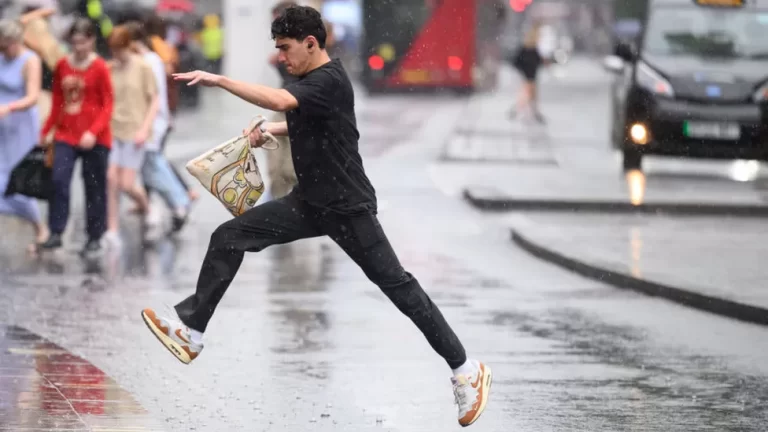Retail sales volumes fell by 1.2% in July after the wet weather hit summer clothing sales and the cost of living weighed on food shoppers.
The Office for National Statistics (ONS) said it was a particularly bad month for supermarkets.
“The summer washout combined with the increased cost of living meant sluggish sales for both clothing and food,” it said. Department stores also reported falling demand for household goods.
Illustrating how much prices have risen, the ONS said that compared to February 2020 – the last full month before Covid struck – total retail sales were 16.4% higher by value but 1.8% lower in the volume of goods people bought.
Earlier this week, new figures showed that inflation, which measures the rate at which prices are rising, slowed again to 6.8%. However, food prices are still increasing at a high rate. The ONS said sales volumes at supermarkets fell by 2.6% July after a rise in June.
It said “some of the fall was because of the poor weather reducing summer clothing sales. However, food sales in supermarkets also fell back”. Retail sales between June and July fell by more than expected. Economists had forecast a drop of around 0.6%.
Ruth Gregory, deputy chief UK economist at Capital Economics, said she was cautious about reading too much into the retail sales figures since it “had a lot to do with last month being the sixth wettest July since records began in 1836”.
“But with the Bank of England's interest rate hikes still feeding through and consumer confidence falling, we remain downbeat on the outlook for overall spending this year,” she said.
Department stores said sales volumes fell by 2.9% between June and July. As well as clothing, they reported a fall in demand for furniture and lighting. For some retailers, the poor weather meant customers changed what they bought.
Gary Grant, founder and chairman of The Entertainer toy retailer, told the BBC's Today programme that parents had spent more on items to keep children occupied during the rain.
He said that while its outdoor toy sales were “substantially down” on a year ago, “our indoor sales, whether that be our stationery items, our craft items, our puzzles, our games, things that you would need to keep your children occupied in the house, those sales have increased”.
The rain also helped online retailers as shoppers stayed at home, with sales up by 2.8% in July.
In total, the share of retail sales online last month rose to 27.4% – the highest since last February – compared to 26% in June. Meanwhile, the ONS revised down the growth in retail sales for June from a rise of 0.7% to an increase of 0.6%. Silvia Rindone, managing partner of strategy and transactions at the accountancy firm EY, said that sales could bounce back in August as children prepare to go back to school.
“Retailers should see sales improve in August as families start shopping for the start of the new school year in September. ‘Back to school' is often the highest spending season in retail after Christmas,” she said. Looking ahead to the festive period, Mr Grant said people tended to hold-off making big ticket purchases until the final few months of the year.
While The Entertainer is gaining from the popularity of the Barbie film at the moment, in particular sales of dolls and clothing, items such as Barbie's caravan or her house, which can cost as much as £300, will be “the big Christmas present”, he said.
— CutC by bbc.com


